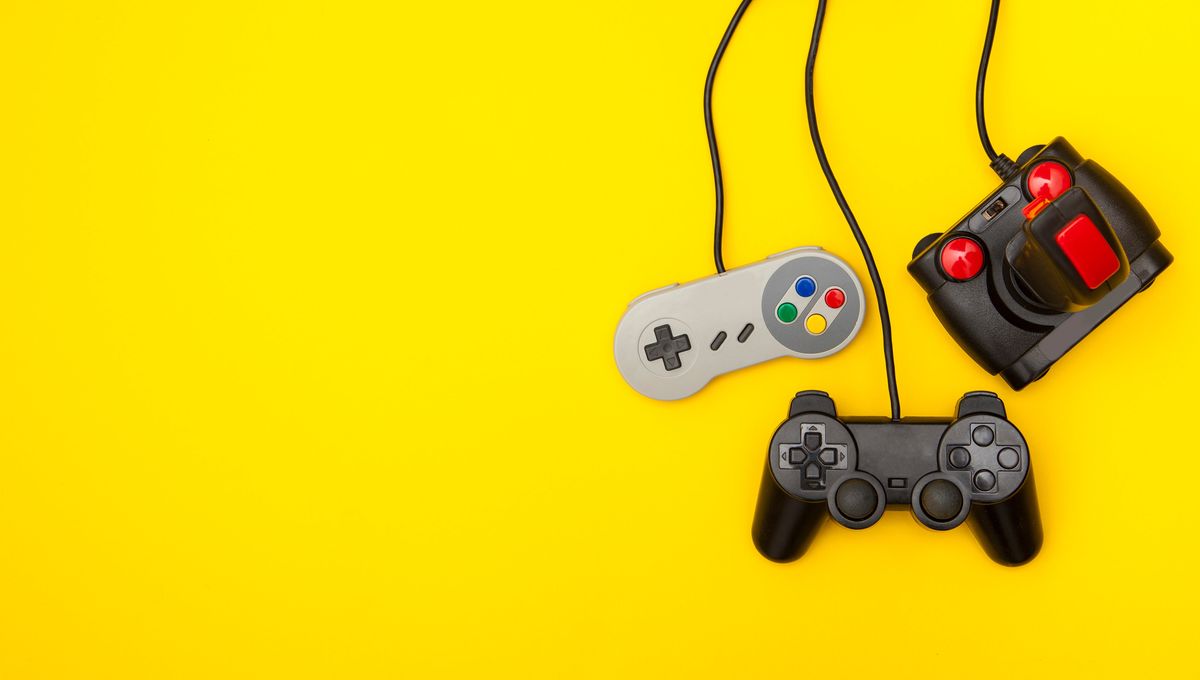
For those of us who have played videogames for a long time, there’s something special about digging out an old console and starting a new game of something you last played as a kid.
Maybe it’s the polyphonic tones of the opening world to the first Mario games, or maybe the panic-inducing tempo of Sonic the Hedgehog as he starts to run out of breath while underwater; or maybe you’re a bit younger than me, and so the trigger for your nostalgia is something to do with Lara Croft on her first adventures (like locking a certain butler in a freezer) or something else altogether. Whatever it is, nostalgia appears to be a specific feeling gamers can experience, and now a new preprint study has examined the different ways people can interact with it.
Videogames were once seen as a pastime for kids, but today they are a form of entertainment for people of all ages. People who grew up in the 1980s and 1990s were the first generations to experience this form of entertainment in a big way, and have seen it mature into a multi-billion-dollar industry. In this time, technologies have evolved, and the nature of gameplay has expanded to offer a vast range of options to players.
But sometimes you want to go back to your roots and revisit the classics. Retro gaming is a specific practice of playing and collecting consoles and games from earlier decades.
According to previous research, retro gaming may be a way to foster social connection and greater wellbeing as it allows people to relive feelings of nostalgia. It is such a powerful interest that it is effectively becoming part of the gaming industry, as gaming companies continue to remaster older games or to create new games in retro styles.
Yet we still don’t know much about the nature of nostalgia in this context, such as who seeks out retro games, how long they spend revisiting these experiences, or what type of hardware choices they make.
In this latest study, which is yet to be peer-reviewed, researchers from Oxford University and Syracuse University addressed some of these questions.
The team analyzed 12,000 hours of retro gaming data from 660 players’ logged sessions on the Nintendo Switch. This console can play retro game titles that were originally released to earlier consoles from between 1985 and 2009.
Participants were on average 31.2 years old and their genders were balanced – approximately 51 percent male, 43 percent female, and 6 percent non-binary or other.
In addition to analyzing their logged hours playing retro games, the researchers also assessed self-reported information provided by the study’s participants. They were asked to comment on their general life satisfaction as well as questions to measure their satisfaction of autonomy, competence, and relatedness, which offered an insight into participant’s relationships with other players or the characters in the games they played.
The results showed that retro gamers – those who spend at lest 10 percent of their total playtime in retro games – tend to be older, often male, and more likely to be in full-time employment. They are also slightly more likely to be white. It seems the time devoted to retro games increased as people aged up to 40 years, after which it plateaued.
Interestingly, people tend to revisit games and consoles that were popular when they were 10 years old, with the Nintendo 64 and SNES being the most popular retro consoles. After this, the Game Boy Advance was the next most popular console.
However, the team also found that 29 percent of retro gaming sessions took place with consoles that had been discontinued by the time the player was born. This behavior is known as historical nostalgia.
“[A] substantial minority of players revisit consoles that were discontinued before they were born –suggesting that players are not only seeking out personal nostalgia, but also historical nostalgia,” the authors write in their study.
“This finding is consistent with the idea that nostalgia is not just about remembering the past, but also about imagining a past that never was”.
Although the study reveals valuable information about the types of people are seeking nostalgic gaming experiences, it still has some limits. For one thing, although it tells us which age (10 years) people revisit and which era (1991 to 2002), it is not clear if this is a universal experience.
“These time periods may be specific to our sample or to Nintendo players, and could be influenced both by when hit titles happened to be published (e.g., Donkey Kong Country for the SNES, published in 1994), as well as by the general age profile of Nintendo games, which tend to be more family-friendly (having lower age ratings) and accessible than games on other consoles.”
Still, with gaming becoming increasingly popular among older people and the games industry continuing to expand, it is likely we will see retro gaming become more popular in the future. This is particularly true as retro gaming may also be a way to rebel against certain trends in mainstream modern games (such as monetization strategies like loot boxes). As such, this research demonstrates the need to understand why people are seeking to play older games and the benefits they offer.
“We hope that our findings will inspire further research into the nature of retro gaming and its implications for identity, wellbeing, and the future of the games industry”, the team conclude.
The preprint study, which has not yet been published in a peer-reviewed journal, is available via PsyArXiv.
Source Link: Retro Gamers Like To Revisit The Games They Played When They Were 10